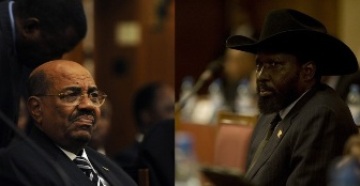Khartoum says war not diplomacy governing relations with South Sudan
March 30, 2012 (KHARTOUM) – A Sudanese official warned on Friday that the current standoff between the country and neighbouring South Sudan has moved from the point of diplomacy and negotiations to that of war and retaliations.

The attack, which Juba accused Sudan’s army (SAF) of provoking, prompted Khartoum to call off a summit scheduled to be held between President Al-Bashir and his South Sudanese counterpart Salva Kiir Mayardit.
Speaking in an interview with Sudan’s state-run radio on Friday, the state minister of media, Sana Hamad Al-Awad, said that Khartoum is no longer pursuing a policy of diplomatic engagement with Juba but rather a policy of “war, securing borders, an iron fist and double retaliation.”
She further derided Kiir for rushing to announce the takeover of Heglig by the SPLA, saying that the South Sudanese president seems good at repeating mistakes. She added that Kiir’s statement cannot be taken as a sign of good will.
According to the Sudanese minister, South Sudan lacks the capacity of sustaining a war of attrition with her country.
She went on to reveal that Khartoum is already engaged in proxy war with Juba, saying that local tribes in borderlands are “fighting on the side of” SAF.
The minister further warned that these groups “know the south well” and that Juba should be careful not to provoke them.
The Sudanese minister might have been referring to the Arab Baggara tribes.
However, Sana later toned down her rhetoric and stressed that Sudan is also not interested in making enemies. She said she hopes that wise men within South Sudan would intervene and bring their country back from the brink.
She also denied any intention on the part of Khartoum to destabilise South Sudan. “We are not concerned by the state of instability in the south or toppling the regime in Juba for that matter.”
Sana downplayed suggestions that the South might attack oilfields, saying that even if that happened Sudan has plenty of non-petroleum resources.
Negotiations between Sudan and South Sudan over oil failed to agree on a fee to transport South Sudanese oil via Sudan, sparking a dispute that saw Khartoum confiscating the commodity and Juba shutting down production in response.
(ST)
